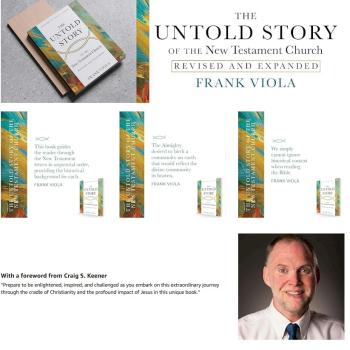Having lived and worked there, I confess I am no great fan of the "Holy" Land or the "Holy" City. The phrase "snake pit" comes to mind rather more readily. And the words of a friend and former correspondent to Jerusalem for a major news outlet (that will go unmentioned) captured the experience rather nicely: "I have never been anywhere where everyone lied to you all the time the way they lie here."
But others are deeply drawn to the place, if not mesmerized. The phenomenon is so common, in fact, that it is called "the Jerusalem syndrome." Seemingly sane people disembark at Tel Aviv and, after kicking around in a pilgrimage site or two suddenly conclude that they are Elijah, Moses, or Mary—geographically in touch with their surroundings, but just a bit off chronologically and psychologically.
But there are at least two other forms of the Jerusalem syndrome that are not as easily diagnosed and for which there is no ready form of medication. One is a widespread, religious syndrome that advocates for foreign and political policy on the mistaken assumption that Jerusalem, the Holy Land, and the Jewish people lie at the heart of an apocalyptic tableau that cannot come to pass until the Temple in Jerusalem is restored and Israel rediscovers its ancient and Davidic borders.
I really have nothing to say about where God would care to take up residence in that great day (though, frankly, I'd recommend a less troubled neighborhood). But the flat-footed reading of the Old and New Testaments has led not a few Americans to conclude that in voting and contributing to political causes, this is and must be among the true Christian's duties. Sadly, that is not only demonstrably a misreading of almost all of the biblical texts in question, it is also a conviction that is manipulated by politicians and others on both sides of the world.
There is, however, (at least) one other form of the Jerusalem syndrome and it comes in two strains, one political and religious, the other simply political. And it is every bit as influential as the fundamentalist-dispensational strain described above. This one is characterized by a pendulum swing in convictions about the affairs of the Middle East. Well-meaning pilgrims visit Israel, bringing with them either no convictions about the region or the reflexively pro-Israeli views of some Americans and, then, after getting in touch with the contemporary situation, they become reflexively pro-Palestinian. Those who carry this brand of the syndrome sport the Palestinian flag, refuse to talk about Jesus being a Jew, and look askance at the inherited ignorance of those who have never been exposed to the realities of life in Gaza and the West Bank. And, like everyone who swings from one extreme to the other, they are not more sophisticated, but simply as reflexive in their views as they were before their conversion.
Now, sadly, I have no solution to offer for the Israeli-Palestinian peace process. If I did, I would quit my day job, take up miracle working, and walk on water for recreation. Having briefly lived with the conflict and having read fairly extensively about it, it is clear to me why classes on dispute resolution treat this as the acid case test for navigating conflict. Frankly, it is only the collapse of the Berlin Wall and the end of Apartheid that lead me to believe that a solution can be found.
What is certain, however, is that introducing one or more strains of the Jerusalem Syndrome into the debate does little to contribute to a solution. Such views—in both their religious and political forms—simply flatten and ignore the complexity of the situation in the name of the same zealotry that has made it impossible to foster peace. The syndrome has been around in various forms going back to the 11th century and it's time to isolate the disease.
Why is this is a spiritual issue? Christians live in the good world of God's creating and we are obligated to live intelligently and responsibly in the world entrusted to us. It is not enough to live out of simple (or, worse yet, simplistic) narratives developed whole-cloth out of abstractions that are uninformed by a knowledge of history and political realities. Far too often, Christians left and right comfort themselves with "being on the right side" of an issue. We are obliged to do far more. It is not enough to adopt the views of others and then wrap a thin Christian rationale around the thinking that others do. The Christians on both extremes in this debate have not always entered into the complexities to the degree that they could and must.





